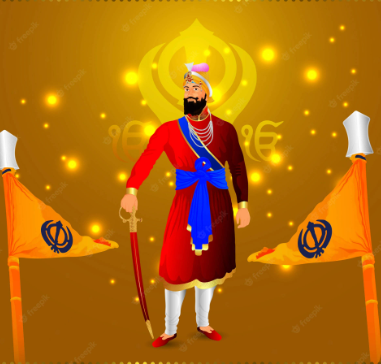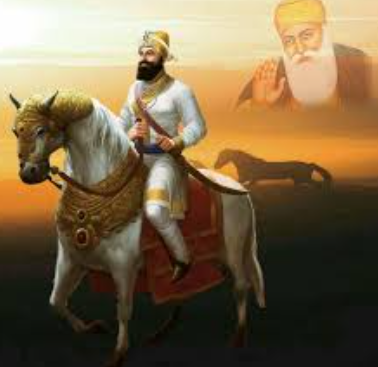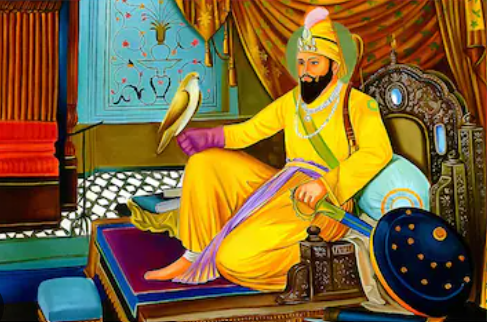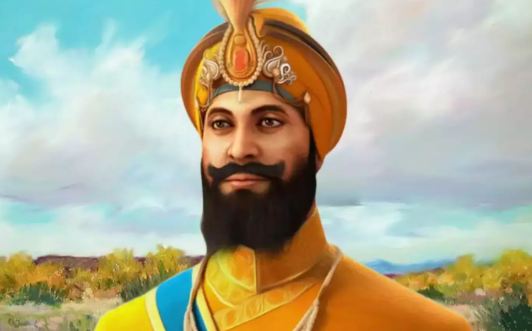
Guru Gobind Singh Jayanti: Illuminating the Prakash Parv of the 10th Sikh Guru
Guru Gobind Singh Jayanti, celebrated as the Prakash Parv of the tenth Sikh Guru, is a joyous occasion,
That holds immense significance for the Sikh community worldwide. This auspicious day commemorates the birth anniversary of Guru Gobind Singh Ji, the spiritual leader, warrior, and poet who played a pivotal role in shaping the ethos of Sikhism.
The Prakash Parv, also known as the “Festival of Light,” is marked with fervor and reverence as Sikhs come together to honor the life and teachings of Guru Gobind Singh. Born on December 22, 1666, in Patna, Bihar, Guru Gobind Singh Ji succeeded his father, Guru Tegh Bahadur Ji, as the tenth Sikh Guru at the tender age of nine. His leadership was characterized by courage, resilience, and an unwavering commitment to justice.

Guru Gobind Singh’s legacy is multifaceted, encompassing spiritual teachings, poetic compositions, and a profound emphasis on equality and righteousness. He is renowned for creating the Khalsa, a community of initiated Sikhs, symbolizing the embodiment of discipline, courage, and devotion. The Khalsa, established in 1699, is an integral part of Sikh identity and plays a central role in the community’s collective consciousness.
On Guru ji’s Jayanti, gurdwaras (Sikh temples) come alive with prayers, hymns, and kirtans (devotional songs) that resonate with the spirit of devotion and gratitude. Sikhs from all walks of life gather to participate in the Akhand Path, a continuous reading of the Guru Granth Sahib, the holy scripture of Sikhism. The atmosphere is filled with the sweet melody of hymns, fostering a sense of unity and spirituality.

The day is not only a celebration of Guru ji’s birth but also an opportunity for reflection on his teachings. Guru Ji’s writings, including the Dasam Granth, stand as timeless expressions of divine wisdom and poetic brilliance. His compositions inspire individuals to lead a life of righteousness, embrace equality, and stand against tyranny.
Guru Gobind Singh Jayanti transcends religious boundaries, as people from various backgrounds join in the festivities. The teachings of Guru ji’s emphasize the universal values of compassion, selflessness, and service to humanity. As Sikhs reflect on Guru Ji’s life, they are reminded of the profound impact he had not only on Sikhism but on the broader tapestry of Indian spirituality and history.

The day is also an occasion for Sikhs to engage in acts of seva (selfless service) and charitable endeavors. Gurdwaras organize langars (community kitchens) where free meals are served to all, regardless of caste, creed, or religion. This practice reflects the Sikh principle of sarbat da bhala, meaning the well-being of all.
Guru Gobind Singh Jayanti serves as a beacon of light, guiding individuals towards a path of righteousness, justice, and selfless service. As the Sikh community and admirers worldwide come together to celebrate this Prakash Parv, the teachings of Guru Gobind Singh continue to illuminate hearts and minds, fostering a world where the flame of love, tolerance, and equality burns bright.

Guru Gobind Singh Jayanti transcends the realms of celebration as it beckons individuals to embody the virtues championed by the revered Guru. The day is not merely a historical remembrance; it is an invitation to introspection and personal transformation. Guru ji’s life exemplifies fearlessness in the face of adversity, unwavering commitment to truth, and a deep sense of duty towards humanity.
Guru Ji’s legacy extends beyond the religious sphere, influencing social and political landscapes. His principled stance against oppression and tyranny resonates as a timeless call for justice and equality. On this occasion, Sikhs often engage in discussions and seminars to delve into the contemporary relevance of Guru ji’s teachings, seeking ways to apply these principles in the modern world.
The creation of the Khalsa holds particular significance on this day. The Khalsa embodies the spirit of chardi kala, the Sikh concept of eternal optimism and resilience, even in the face of challenges. Sikhs worldwide take this opportunity to recommit themselves to the values of the Khalsa and reflect on how they can contribute to the betterment of society.
Guru Gobind Singh Jayanti is also marked by processions, known as Nagar Kirtans, which traverse through cities and towns. These vibrant processions are characterized by the display of martial arts, traditional Gatka performances, and the chanting of hymns. The atmosphere is infused with a sense of camaraderie and devotion as participants, adorned in traditional attire, share the teachings of Guru Ji with onlookers.
The celebration extends beyond the walls of gurdwaras, reaching Sikh households and communities. Families come together for special prayers, kirtans, and discussions on the life and teachings of Guru Gobind Singh. The occasion provides a platform for the passing down of traditions from one generation to the next, fostering a deep connection to Sikh heritage.
For the latest updates-click here.

